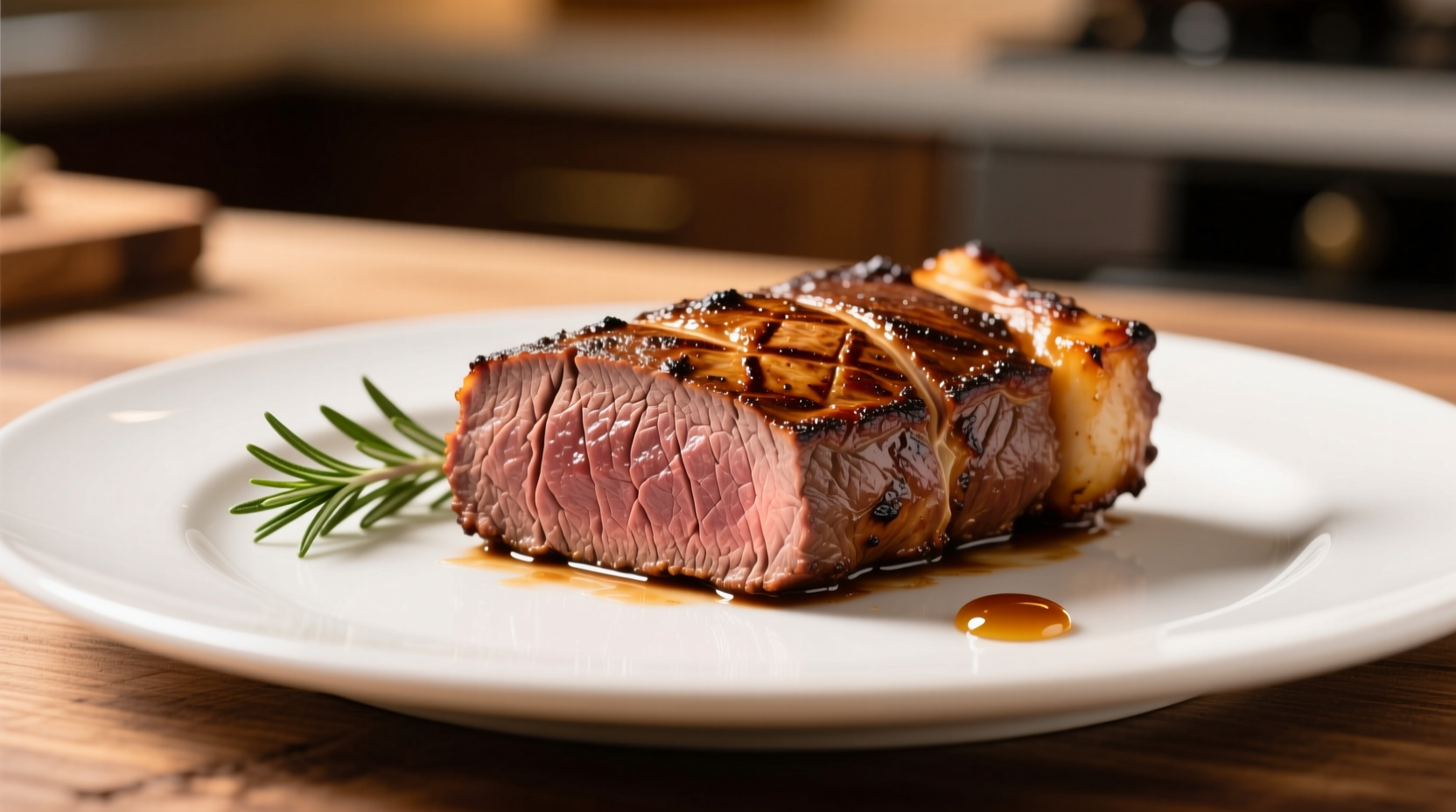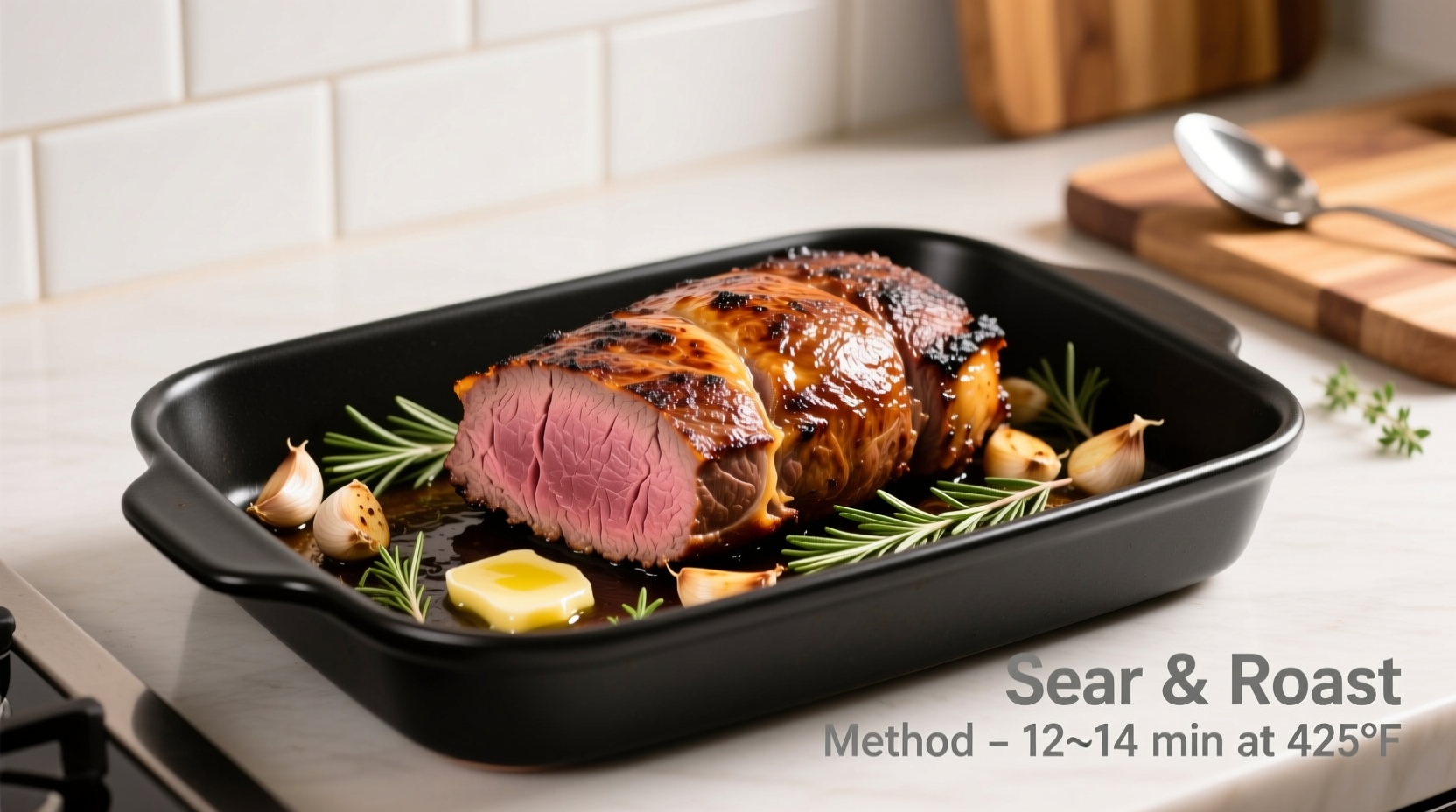Mastering Oven-Roasted Beef Tenderloin: A Foolproof Guide
Nothing impresses dinner guests quite like a perfectly cooked beef tenderloin. This premium cut requires precision but rewards with melt-in-your-mouth tenderness when prepared correctly. Follow this professional technique to achieve restaurant-quality results in your home kitchen.
Why This Method Works
Beef tenderloin (also called filet mignon when cut into steaks) is the most tender cut but lacks fat marbling, making proper cooking technique essential. The two-temperature approach—starting high for crust development, then lowering for even cooking—creates the ideal balance of caramelized exterior and rosy pink interior.
| Cooking Stage | Temperature | Time | Target Result |
|---|---|---|---|
| Searing | 450°F | 15 minutes | Deep brown crust |
| Roasting | 375°F | 15-20 minutes | 125-130°F internal |
| Resting | Room temp | 15 minutes | 135-140°F final |
Essential Equipment Checklist
- Oven-safe meat thermometer (critical for accuracy)
- Heavy roasting pan or cast-iron skillet
- Wire rack (optional but recommended)
- Sharp carving knife
- Chef's torch (for optional extra searing)
Selecting Your Beef Tenderloin
Choose a center-cut tenderloin weighing 2-3 pounds with even thickness. Look for bright red color with fine marbling and creamy white fat. USDA Prime grade offers the best marbling, though Choice grade works well too. Avoid pieces with excessive tapering, which leads to uneven cooking.
Preparation Process
- Trim excess fat: Remove silver skin using a thin, flexible knife
- Season generously: Pat dry, then coat with 1 tbsp kosher salt and 2 tsp black pepper per pound
- Optional flavor boost: Rub with 2 tbsp Dijon mustard and 3 minced garlic cloves
- Bring to room temperature: Let sit uncovered for 1-2 hours before cooking

Oven Cooking Technique
Preheat oven to 450°F. Place tenderloin on a wire rack in roasting pan. Insert thermometer into thickest part. Roast for 15 minutes to develop crust, then reduce heat to 375°F. Continue roasting until thermometer reads 125°F for medium-rare (typically 15-20 more minutes). Remember that temperature will rise 5-10°F during resting due to carryover cooking.
According to USDA Food Safety and Inspection Service guidelines, beef is safe to eat at 145°F with 3-minute rest time, but culinary professionals recommend 130-135°F for optimal tenderness in premium cuts like tenderloin. The USDA's thermometric guide confirms that carryover cooking continues the cooking process after removal from heat.
The Critical Resting Period
Transfer cooked tenderloin to a cutting board, tent loosely with foil, and rest for 15 minutes. This allows juices to redistribute throughout the meat. Cutting too soon releases precious juices onto the board rather than staying in the meat. During this time, the internal temperature will rise to perfect medium-rare (135°F).
Serving Your Masterpiece
Slice against the grain into 1/2-inch thick pieces using a sharp knife. Serve with simple pan juices (deglaze pan with 1/2 cup beef broth and 2 tbsp butter) or your favorite sauce. Pair with roasted vegetables and mashed potatoes for a classic presentation.
Avoid These Common Mistakes
- Skipping the sear: Results in bland, boiled-meat texture
- Overcooking: Tenderloin dries out quickly past medium
- Cutting too soon: Causes juice loss and dry meat
- Using cold meat: Creates uneven cooking and gray exterior
Professional chefs emphasize that the Maillard reaction—the chemical process creating complex flavors during browning—requires both high heat and dry surface conditions. As noted in the University of Illinois Food Science department's research, moisture control is critical for proper crust development in lean meats like tenderloin.
Storage and Reheating Tips
Store leftovers in airtight container for up to 3 days. To reheat without overcooking, place slices in 250°F oven until warmed through (about 10 minutes). For best results, enjoy cold in salads or sandwiches where texture changes are less noticeable.











 浙公网安备
33010002000092号
浙公网安备
33010002000092号 浙B2-20120091-4
浙B2-20120091-4